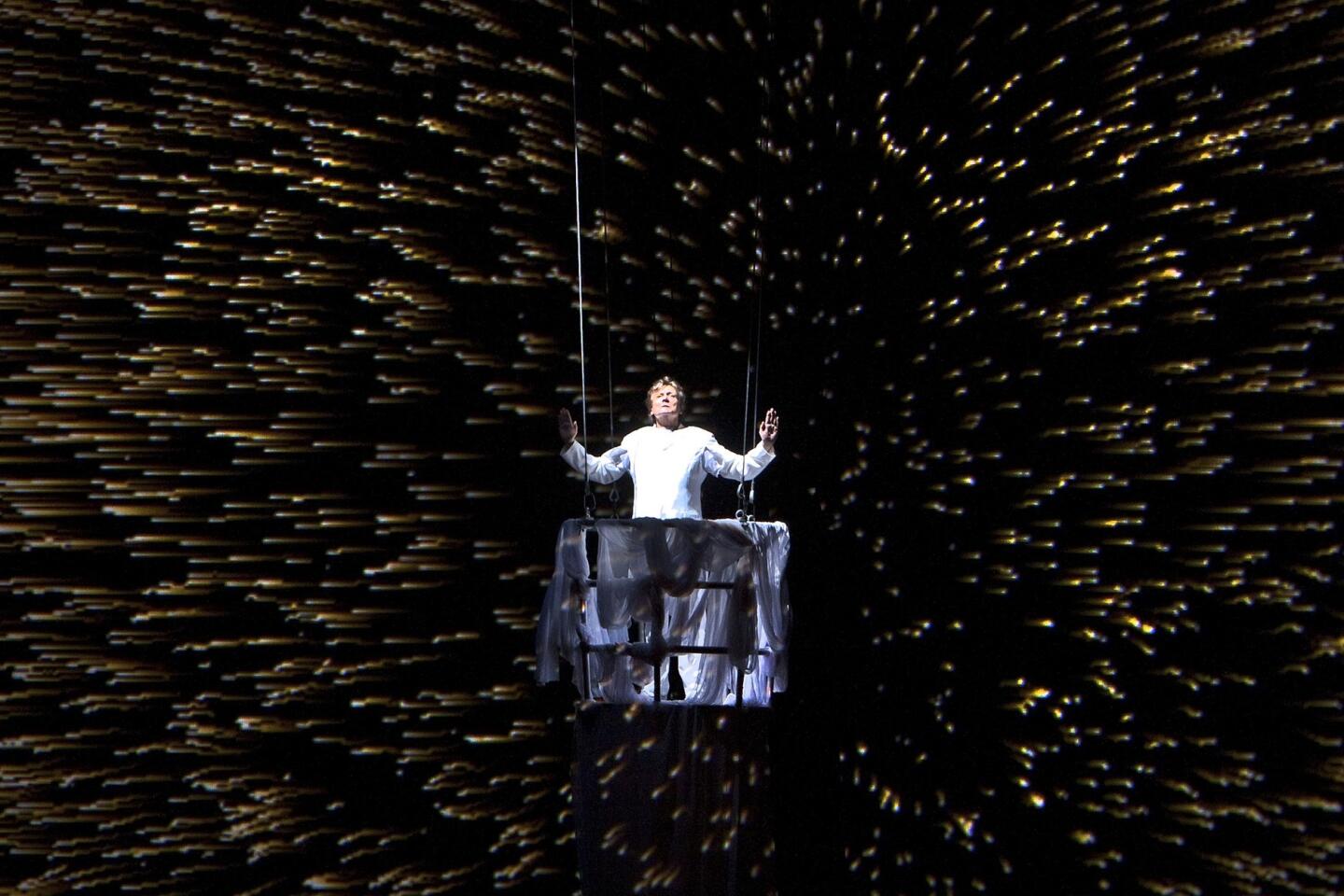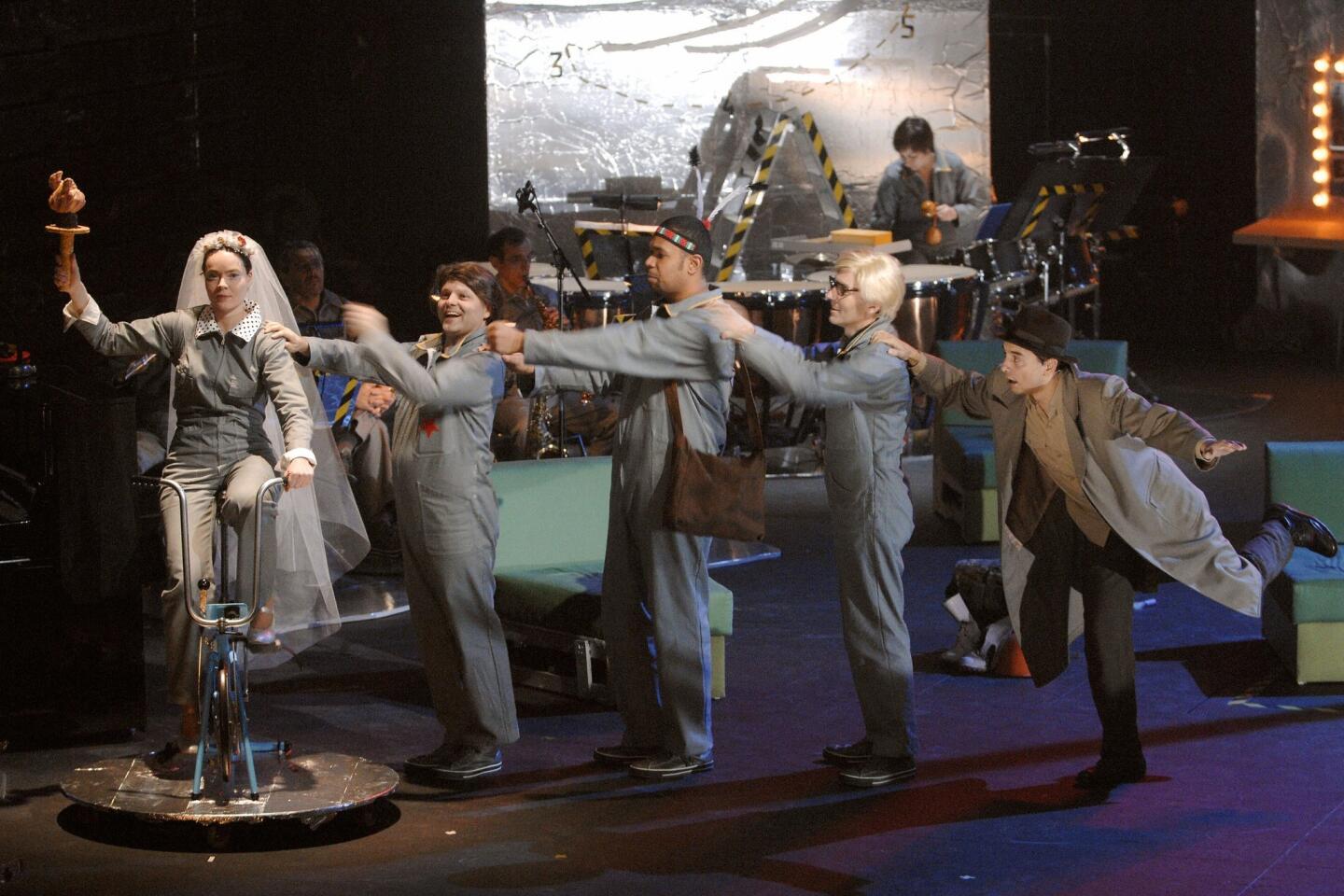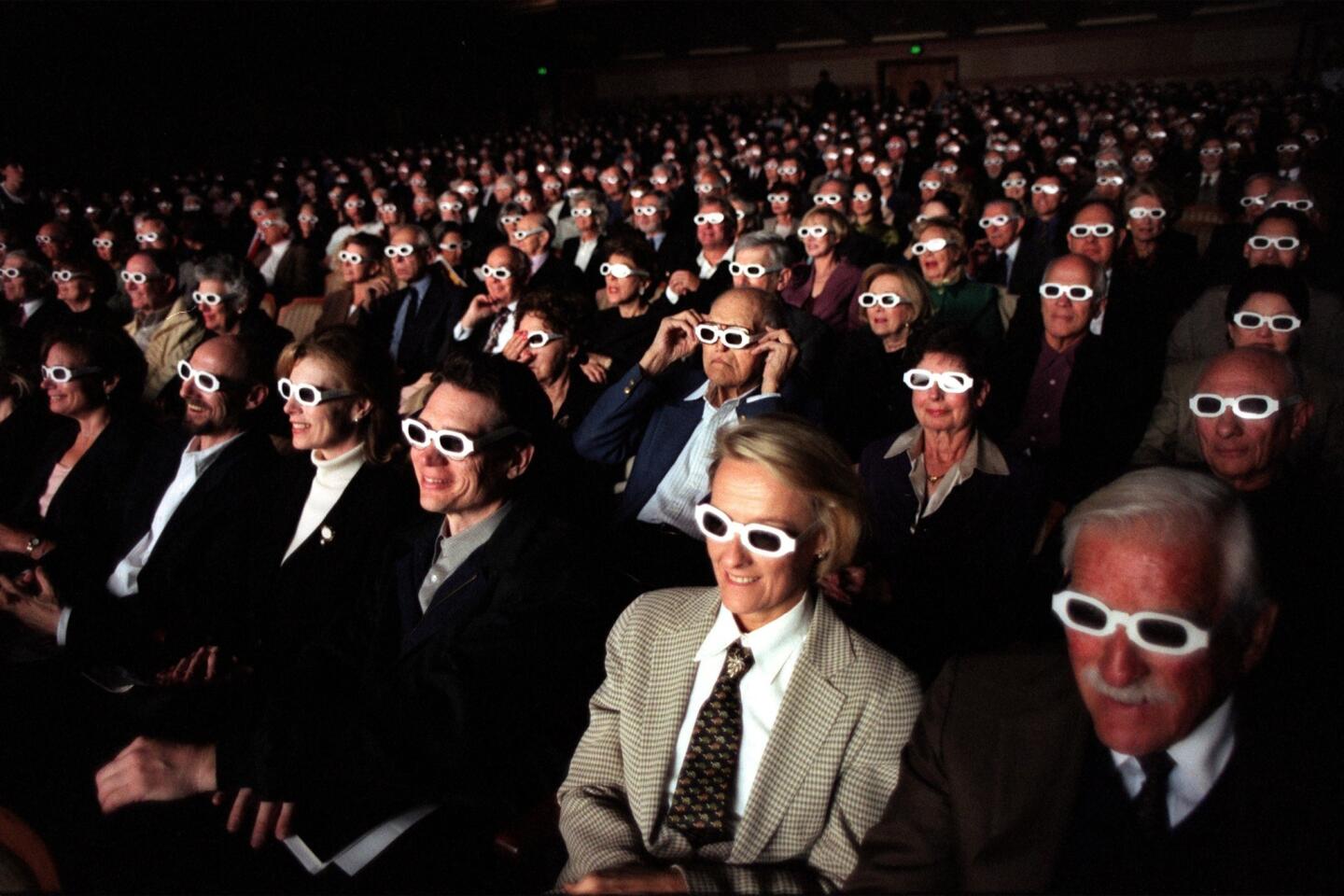Claudio Abbado, greatness beyond just a career
That Claudio Abbado, who died Monday at 80, would become an important conductor was never in doubt.
He was elegant in that intimidatingly sophisticated way of Milanese artists. He wasn’t flashy, but he was of his time. In his youth he had the charisma and style of a Fellini or Antonioni star driving an Alfa Romeo convertible through the streets of Swinging Sixties Rome.
He was also mysterious. He could be formal yet funny, frosty yet gracious. He’s been described as arrogant; I always found him approachable. He gave equal time to his intellectual and intuitive sides. His hands and eyes were mesmerizingly expressive whether he was conducting or holding a fork at dinner.
CRITICS’ PICKS: What to watch, where to go, what to eat
He supported the Communists in Italy throughout his life. Even so, he acquired the most power of any conductor in the generation after Herbert von Karajan and Leonard Bernstein (both of whom were early champions), making him the most formidable Italian conductor after Toscanini.
Abbado became music director of La Scala in 1968, when it was the most important opera company in the world, and over the next 18 years he gave it what it needed most — relevance. As head of the London Symphony in the 1980s, when London was throwing over its last traces of provincialism, Abbado’s sophisticated cosmopolitanism was just what the city needed to help make it one of the world’s two or three most important music capitals.
When he ran the Vienna State Opera, also in the 1980s, Abbado became the leading figure in musical life of the tradition-laden city, which he brought (if kicking and screaming) into the late 20th century and made matter again. When he reached the peak of his profession in 1989, as music director of the Berlin Philharmonic after the death of Karajan, he was, to the players, Claudio, not Maestro. That alone permanently changed the tone of musical life in Berlin.
My memories of Abbado begin with a performance of Verdi’s “Simon Boccanegra” at La Scala in 1974 that showed me that opera could really be serious dramatic theater. He was also devoted to many of the most progressive European composers of his time, making him a hero to many of my generation.
In the ‘80s, I made pilgrimages to Chicago to hear him lead Stockhausen’s groundbreaking “Gruppen” and to Milan for a Stockhausen opera he commissioned for La Scala. Three decades later New York Philharmonic finally got around to “Gruppen” and New York got its first taste of a Stockhausen opera at the Lincoln Center Festival and found these revelations. Had he become music director of the Chicago Symphony or the New York Philharmonic (both almost happened), his effect on American musical life would have been significant.
PHOTOS: Arts and culture in pictures by The Times
But ultimately power didn’t become Abbado. He wasn’t an institutional man. He took pride in saying that he never sought any music directorship. And while there is no indication that power corrupted Abbado, he did become necessarily more cautious and self-conscious as his profile rose. His early recordings have a sparkle and freshness. His later Berlin Beethoven and Mahler could seem polished to perfection and were starting to seem predictable. There was concern that he was becoming a control freak.
Milan, Vienna and Berlin were, moreover, places where intrigue was ever present, requiring continual political maneuvering. In danger of becoming jaded, he thus began turning his attention to young musicians. He founded the Gustav Mahler Youth Orchestra and from it found new inspiration.
I knew Abbado only slightly. I interviewed him or had conversations with him a handful of times and shared a couple of meals (always at tables with many others). He loved to talk music. He loved to talk philosophy. He loved to talk art. He did not shy from discussing politics. He seemed never to have lost his strong ideals.
He was admirable in his unwillingness to put up with many of the distractions of the music business. He didn’t do publicity or sign CDs after concerts.
But he couldn’t avoid all of this completely, and his positions inevitably fed his ego. I once ran into him at Tower Records in New York, where he was checking out the supplies and displays of his Berlin Philharmonic recordings.
INTERACTIVE: High-earning conductors
Greatness, true greatness, came late and shockingly. In 2000, Abbado was diagnosed with stomach cancer. He wasn’t expected to survive. He did. He returned to the podium, gaunt and looking almost scary.
The worst distraction of all — the immediate prospect of death — had proven the one that rid Abbado of all the others. He began to treat every note he conducted as though it might be his last. His performances, still urbane and illuminating, became profound.
Abbado devoted his last decade to rethinking works he had begun to take for granted and to catch up with scores by Bach, Mozart and even Beethoven that he had never conducted. He founded more youth groups, such as the Orchestra Mozart in Italy, and made revelatory recordings that have a good chance of surviving the ages.
He also became one of the most important mentors of Gustavo Dudamel. Abbado loved the El Sistema music education miracle in Venezuela, and there is no more memorable way to remember him than a mystically hypnotic performance on DVD of him conducting the Simón Bolívar Youth Orchestra in Tchaikovsky’s Sixth Symphony at the Lucerne Easter Festival four years ago.
Dudamel will likely bring a more emotional approach to the “Pathétique” when he conducts it next month as part of the L.A. Phil’s TchaikovskyFest, but the interpretation won’t necessarily be without Abbado’s influence. What Dudamel clearly got from the Italian conductor was an analytical focus, an intense attention to detail and an emphasis on the interiority of sound.
Abbado’s was a great career in music, but his greatness came in his getting beyond all that. Legends have been built on less.
More to Read
The biggest entertainment stories
Get our big stories about Hollywood, film, television, music, arts, culture and more right in your inbox as soon as they publish.
You may occasionally receive promotional content from the Los Angeles Times.










